-
 bitcoin
bitcoin $87959.907984 USD
1.34% -
 ethereum
ethereum $2920.497338 USD
3.04% -
 tether
tether $0.999775 USD
0.00% -
 xrp
xrp $2.237324 USD
8.12% -
 bnb
bnb $860.243768 USD
0.90% -
 solana
solana $138.089498 USD
5.43% -
 usd-coin
usd-coin $0.999807 USD
0.01% -
 tron
tron $0.272801 USD
-1.53% -
 dogecoin
dogecoin $0.150904 USD
2.96% -
 cardano
cardano $0.421635 USD
1.97% -
 hyperliquid
hyperliquid $32.152445 USD
2.23% -
 bitcoin-cash
bitcoin-cash $533.301069 USD
-1.94% -
 chainlink
chainlink $12.953417 USD
2.68% -
 unus-sed-leo
unus-sed-leo $9.535951 USD
0.73% -
 zcash
zcash $521.483386 USD
-2.87%
What are the costs of Bitcoin mining?
The total cost of Bitcoin mining encompasses hardware expenses, significant electricity consumption requiring cooling systems, pool fees, maintenance, transaction fees, and a consideration of potential payback period.
Jan 12, 2025 at 02:04 pm
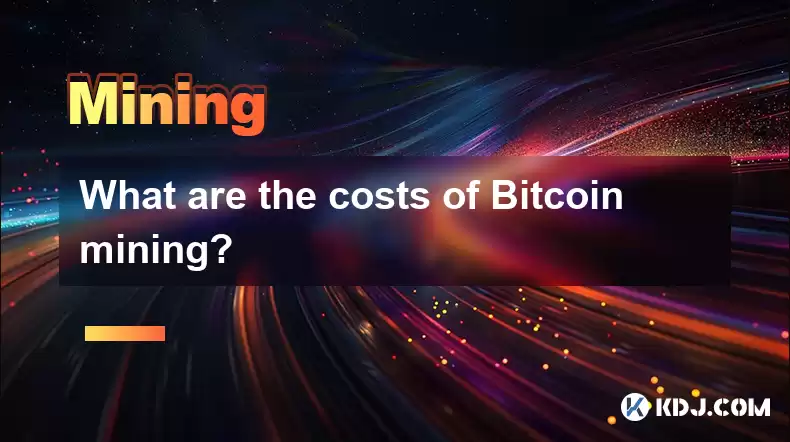
- Hardware Costs: These include the cost of specialized ASIC miners that are designed to perform the complex computational tasks required for Bitcoin mining. ASIC miners can range in price from a few hundred dollars to several thousand dollars, depending on their efficiency and hash rate.
- Electricity Costs: Bitcoin mining consumes a significant amount of electricity, as the ASIC miners need to operate continuously to solve blocks and earn rewards. Electricity costs can vary significantly depending on the location and energy rates, and can be a major expense for miners.
- Cooling Costs: ASIC miners generate a lot of heat, which can damage the hardware if not properly cooled. Miners need to invest in cooling systems, such as air conditioners or liquid cooling, to maintain the optimal operating temperature for their ASIC miners.
- Pool Fees: If a miner chooses to join a mining pool to increase their chances of earning rewards, they will incur pool fees. Pool fees typically range from 1% to 5% of the miner's earnings.
- Maintenance Costs: ASIC miners are complex machines that require regular maintenance to ensure optimal performance. This can include cleaning, replacing components, and troubleshooting issues that may arise. Maintenance costs can vary depending on the miner's equipment and the level of service required.
- Transaction Fees: When miners successfully solve a block and earn a reward, they pay a transaction fee to include the block in the blockchain. Transaction fees vary based on the current network congestion and can fluctuate significantly.
- Investment Horizon: Bitcoin mining requires a significant upfront investment in hardware and electricity. Miners should consider the potential return on investment (ROI) and the length of time it may take to recoup their initial costs before making a decision to mine Bitcoin.
- How profitable is Bitcoin mining?The profitability of Bitcoin mining depends on a number of factors, including the price of Bitcoin, the cost of electricity, and the miner's hardware efficiency. Currently, mining Bitcoin can be profitable for miners with efficient equipment and access to low electricity costs.
- What are the risks of Bitcoin mining?Bitcoin mining involves a number of risks, including hardware failure, electricity fluctuations, and changes in the Bitcoin market. Miners should carefully consider these risks and have a contingency plan in place before investing in mining equipment.
- Is Bitcoin mining environmentally friendly?Bitcoin mining consumes a significant amount of electricity, which could have a negative impact on the environment. However, there have been efforts to promote the use of renewable energy sources for Bitcoin mining, and the industry is exploring ways to reduce its carbon footprint.
Disclaimer:info@kdj.com
The information provided is not trading advice. kdj.com does not assume any responsibility for any investments made based on the information provided in this article. Cryptocurrencies are highly volatile and it is highly recommended that you invest with caution after thorough research!
If you believe that the content used on this website infringes your copyright, please contact us immediately (info@kdj.com) and we will delete it promptly.
- Blockchain Gaming's Quiet Revolution: Unpacking Latest Trends and Industry Insights Amidst Market Shifts
- 2026-02-02 06:30:01
- Crypto Crossroads: Bitcoin Price Reacts to Fed Jitters Amidst Shifting Sands
- 2026-02-02 05:05:02
- Justin Sun, Tron, Manipulation Allegations: New Bitcoin Strategy Meets Lingering Controversy
- 2026-02-02 05:05:02
- Bitcoin Eyes $77K as Michael Saylor Reaffirms Unwavering Conviction Amidst Market Swings
- 2026-02-02 05:00:02
- Altcoin Season on the Horizon? ETH, XRP, SOL, ADA Face Potential 184x Gains Amidst Shifting Crypto Landscape
- 2026-02-02 05:00:02
- Bitcoin ETF News: Latest Updates Drive Investment and Market Dynamics
- 2026-02-02 04:50:02
Related knowledge

How to Earn Passive Income with DePIN Mining? (New Trend 2026)
Feb 01,2026 at 12:40pm
Understanding DePIN Mining Mechanics1. DePIN mining relies on real-world infrastructure participation rather than computational hashing. Users deploy ...
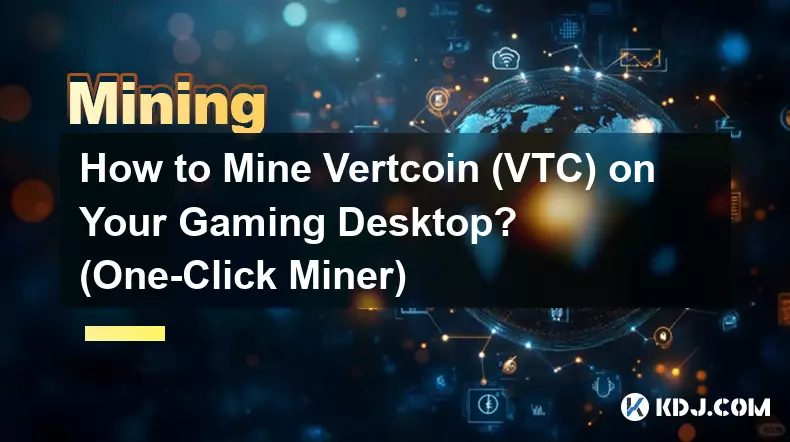
How to Mine Vertcoin (VTC) on Your Gaming Desktop? (One-Click Miner)
Feb 02,2026 at 03:39am
Understanding Vertcoin's Mining Algorithm1. Vertcoin uses the Verthash algorithm, which is intentionally memory-hard and designed to resist ASIC domin...
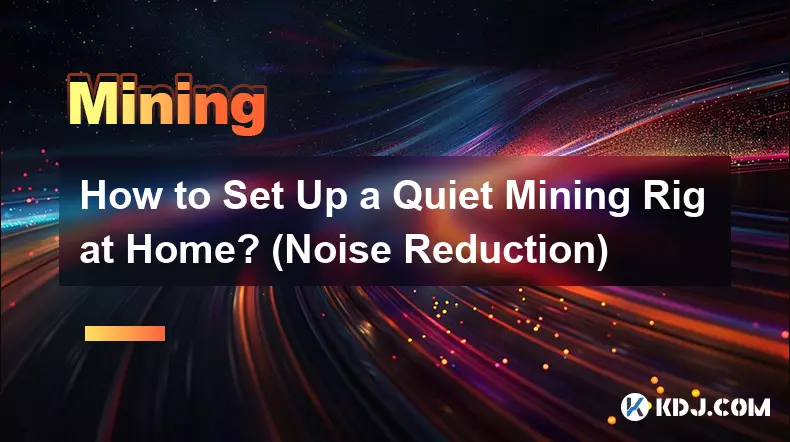
How to Set Up a Quiet Mining Rig at Home? (Noise Reduction)
Feb 01,2026 at 11:00pm
Acoustic Enclosure Design1. Use rigid, dense materials such as MDF or acoustic-grade plywood for the enclosure walls to block mid-to-high frequency no...
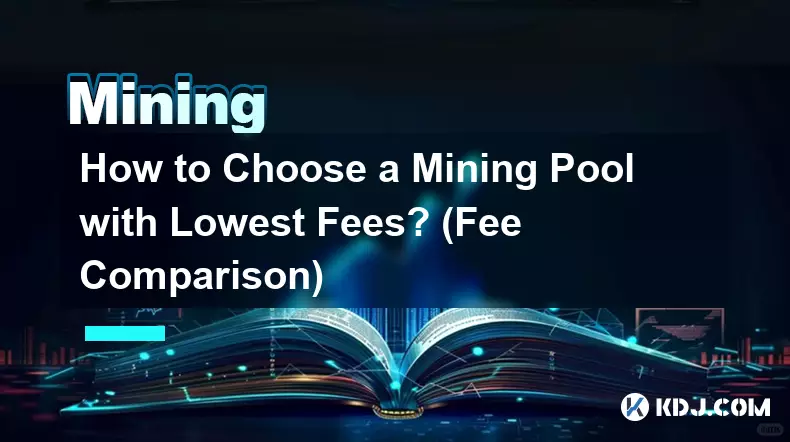
How to Choose a Mining Pool with Lowest Fees? (Fee Comparison)
Feb 02,2026 at 02:39am
Understanding Mining Pool Fee Structures1. Pool operators charge fees to cover infrastructure, maintenance, and administrative costs. These fees manif...

How to Mine Bitcoin on Mac (M1/M2/M3)? (Software Tutorial)
Feb 01,2026 at 07:19pm
Understanding Bitcoin Mining on Apple Silicon1. Bitcoin mining relies on solving cryptographic puzzles using computational power, and Apple’s M1, M2, ...
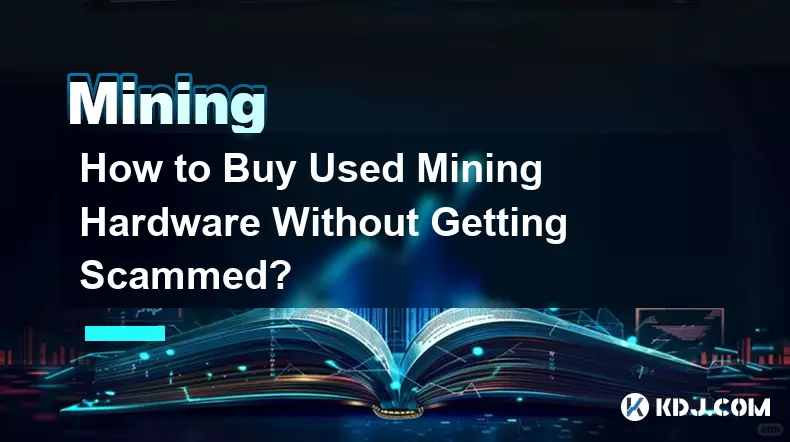
How to Buy Used Mining Hardware Without Getting Scammed?
Feb 01,2026 at 08:00pm
Research the Seller's Reputation Thoroughly1. Check archived listings and feedback on platforms like Bitcointalk forums, Mining Hardware subreddits, a...

How to Earn Passive Income with DePIN Mining? (New Trend 2026)
Feb 01,2026 at 12:40pm
Understanding DePIN Mining Mechanics1. DePIN mining relies on real-world infrastructure participation rather than computational hashing. Users deploy ...

How to Mine Vertcoin (VTC) on Your Gaming Desktop? (One-Click Miner)
Feb 02,2026 at 03:39am
Understanding Vertcoin's Mining Algorithm1. Vertcoin uses the Verthash algorithm, which is intentionally memory-hard and designed to resist ASIC domin...

How to Set Up a Quiet Mining Rig at Home? (Noise Reduction)
Feb 01,2026 at 11:00pm
Acoustic Enclosure Design1. Use rigid, dense materials such as MDF or acoustic-grade plywood for the enclosure walls to block mid-to-high frequency no...

How to Choose a Mining Pool with Lowest Fees? (Fee Comparison)
Feb 02,2026 at 02:39am
Understanding Mining Pool Fee Structures1. Pool operators charge fees to cover infrastructure, maintenance, and administrative costs. These fees manif...

How to Mine Bitcoin on Mac (M1/M2/M3)? (Software Tutorial)
Feb 01,2026 at 07:19pm
Understanding Bitcoin Mining on Apple Silicon1. Bitcoin mining relies on solving cryptographic puzzles using computational power, and Apple’s M1, M2, ...

How to Buy Used Mining Hardware Without Getting Scammed?
Feb 01,2026 at 08:00pm
Research the Seller's Reputation Thoroughly1. Check archived listings and feedback on platforms like Bitcointalk forums, Mining Hardware subreddits, a...
See all articles










































































